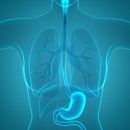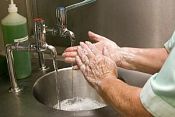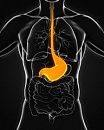Oral Hygiene Programs: Oral Care Is Critical Care #e212
Presenter: Tom Franceschini, MS, CCC-SLP
Learn evidence-based research supporting the need for improved oral care in the at-risk patient.
"This course encouraged me to continue the fight for oral care at my facility."
– C.H., prior course participant
Read more comments about this course!
Which is a better predictor for an individual to develop pneumonia: a diagnosis of dysphagia, or poor oral hygiene? The answer to this question may surprise you.
This course discusses the colonization of oral pathogens and how oral pathogens contribute to the development of aspiration pneumonia (AP), healthcare acquired pneumonia (HAP) and ventilator associated pneumonia (VAP). Reviewed will be current oral care practices and the evidence-based research supporting the need for improved oral care in the at-risk patient. Development of oral care guidelines for assessment and treatment in various institutional settings will be discussed.
Course is offered for 0.15 CEUs – 1.5 contact hours.
Course Overview – Run Time 1:50:11
- Pneumonia Defined
- Oral Pharyngeal Colonization
- Developing an Oral Care Assessment Tool
- Developing an Oral Care Protocol
"Hands on guidance on how to perform and implement an oral care program. I liked the mix of evidence based information with the presenter's own experience."
– N.S., prior course participant
Read more comments about this course!
The content of this online CE course does not focus exclusively on any specific proprietary product or service. Presenter financial and non-financial disclosures may be found in the Presenter & Disclosures area.
Video PowerPoint presentation with author narration & downloadable handout. Stop and re-start the course at any point. Learners retain access to course content after completion for ongoing reference and review.
Reviews
"Oral hygiene steps were most beneficial. Clear presentation, informative slides." M.H. (May 2025)
"Everything was clinically useful. Examples help a lot." T.H. (May 2025)
"I liked the use of practical pictures to explain the difference between normal and abnormal." M.U. (Apr. 2025)
"All content was helpful and relevant. This course was very practical." E.N. (Feb. 2025)
"This information was easy to understand and follow. Oral care with other disciplines was a beneficial topic." V.S. (Feb. 2025)
"Beneficial topics were financial ramifications of HAP, research designating bacterial load is the major factor, not aspiration itself, defining what constitutes gold standard oral care, and explaining the need for regular oral care assessment. I liked the suggestions for additional research articles." S.V. (Jan. 2025)
"It was beneficial to discuss the frequency of assessing oral hygiene at each shift change. How brushing, swabbing, and suctioning have different roles in oral hygiene and should be used in combination based on the patient's needs. I liked the Ontario and Iowa references." L.M. (Dec. 2024)
"The breakdown of the types of pneumonia was helpful." L.W. (Dec. 2024)
"I liked the broad review of current oral care guidelines and updated information about the study that indicated 10-15 degree bed elevation was as effective as 30-45. Liked all the guides and options for handouts." L.L. (Dec. 2024)
"I found it all very interesting and plan to discuss this with our hospital. Detailed explanations." A.G. (Nov. 2024)
"Learning the role oral heath plays in a patient's clinical outcomes, especially when related to dysphagia and the interventions we recommend and the functional guidelines to implement these practices. I liked the ease of understanding and direct application to acute care practice." L.T. (Nov. 2024)
"Oral care assessment and programming were beneficial. Research support was in depth." K.R. (Nov. 2024)
"The handouts and advice on starting an oral care program were very helpful. I liked learning tangible ways to implement better oral care practices that are backed by research." A.P. (Nov. 2024)
"I liked the ease of listening." A.S. (Nov. 2024)
"The setting up of an effective oral care program was beneficial. I enjoyed the information." B.P. (Aug. 2024)
"Factual statements to bring to my team in order to push better oral care. I liked the ideas for developing an oral care program." D.R. (Aug. 2024)
"All aspects were applicable. I liked the thorough knowledge of the presenter." K.T. (Jun. 2024)
"Discussing the impact of oral care on pt status was helpful. Concise and relevant. Photos were beneficial." T.G. (Jun. 2024)
"Very enjoyable speaker. Discussing the need for daily assessment of mouth hygiene and reducing risks of pneumonia in ventilated patients was helpful." C.S. (Jun. 2024)
"The criteria Tom listed for dx of PNA and, since I work in a SNF, the implementation of an oral care program was especially useful, including the buy-in from all parties. I appreciated his references and citing resources. The review of information about the importance of oral care and how to implement it in one's healthcare setting." S.L. (Jun. 2024)
"Discussing oral hygiene was beneficial. I liked the convenience of the course." K.M. (Jun. 2024)
"The stats involving oral care and illness to support oral care program were helpful. All helpful information that was relevant and detailed." R.W. (Apr. 2024)
"I enjoyed the discussion of the oral care program." V.R. (Apr. 2024)
"Discussing components of a program and cost versus benefit statistics was helpful. I liked the ability to take the course over time." L.R. (Mar. 2024)
"It was beneficial discussing the three main predictors of aspiration being related to oral care!!! I liked the ease of access and the wealth of information." A.M. (Feb. 2024)
"The oral hygiene protocols were helpful." R.J. (Dec. 2023)
"Beneficial topics in this course were Bi-Directional Relationships; Risk Factors; Developing Oral Care Programs; Components of Oral Care Programs; Research Studies; Interventions." M.B. (Dec. 2023)
"The use of chlorhexidine as an effective oral cleaner w/o brushing. The slides were brief and carried essential information." D.O. (Nov. 2023)
"Great for LTC setting." A.M. (Nov. 2023)
"The whole course was helpful. To my knowledge, my hospital doesn't have an actual oral care program, so I look forward to leading the way on this! I liked the high topic of interest, easy to understand, the presenter was engaging, easy to listen to, and provided excellent resources." V.O. (Nov. 2023)
"Straight forward presentation. The oral hygiene programs and statistics were beneficial." D.D. (Nov. 2023)
"Clear information. Easy to understand and implement. Oral hygiene considerations for hospital patients that I see daily." M.M. (Oct. 2023)
"I liked the discussion on the development of an oral care program, costs, and increased length of stay data to support "buy-in" by administrators." C.C. (Oct. 2023)
"Description of VAP was beneficial. This course gave me new knowledge that I can immediately implement in my practice." J.C. (Sep. 2023)
"Discussing the causes of aspiration pneumonia was helpful. I liked the emphasis on what to do." S.W. (Sep. 2023)
"All of this seminar was beneficial! I liked the handouts given and ideas for a facility program handout." E.N. (Sep. 2023)
"I liked the practical suggestions for implementing an oral care program even in a very tough setting (I work in an LTC nursing home with 200 residents and high CNA turnover)." L.D. (Jul. 2023)
"Practical guidelines. Research-based." J.B. (Jul. 2023)
"The assessment suggestions were beneficial. I liked the clear presentation." E.S. (May 2023)
"I liked the whole presentation. This course was easily accessible." L.P. (Apr. 2023)
"Discussion of suction types was beneficial." J.K. (Apr. 2023)
"Great overview of the importance of oral care." S.K. (Apr. 2023)
"I liked the processes for assessment, and actual treatment practices for oral care." H.S. (Mar. 2023)
"Risk factors for PNA. Covered topics to the appropriate depth. Good rate of speech." A.B. (Mar. 2023)
"Lots of evidence! Importance and simplicity of oral care, and how easy it is to train the family to implement the program." R.H. (Mar. 2023)
"Definitions of oral care practices. I liked the flow of course." L.L. (Feb. 2023)
"I found the entire topic to be beneficial. I enjoyed the convenience of the course." A.W. (Jan. 2023)
"Learning specific causes of aspiration pneumonia and the oral treatments was beneficial." S.P. (Dec. 2022)
"Resources online for starting an oral care program. I liked the photographs of healthy vs unhealthy lips, gums, etc." J.P. (Dec. 2022)
"Learning the importance of good oral hygiene in order to prevent other diseases in the body." L.J. (Dec. 2022)
"Very helpful information, very beneficial to my practice." J.H. (Dec. 2022)
"The discussion of biofilm was enlightening. I liked the recommendations for an oral care program and how best to implement it." E.D. (Nov. 2022)
"I liked the research and background knowledge presented." C.C. (Nov. 2022)
"This course was concise. Good protocols for oral care." J.R. (Oct. 2022)
"Hands on guidance on how to perform and implement an oral care program. I liked the mix of evidence based information with the presenter's own experience." N.S. (Sept. 2022)
"I need to be a better advocate for oral care and ensure that we have a protocol in place. I loved the discussion about Free Water Protocol. I advocated for this and jumped through many hoops to get it initiated in our large University Hospital. It is being used on our acute Rehab units but not as much on our acute units." J.M. (Aug. 2022)
"I would recommend this course." M.S. (Aug. 2022)
"I liked the speaker's expertise and ability to convey his personal experience relative to currently limited protocols for oral hygiene assessment/practice within health care settings." R.A. (Jul. 2022)
"Immediately relevant to acute care practice." J.B. (Jun. 2022)
"The data to bring to the team about the importance of oral care programs, such as money saved and reduced risk of other diseases. Very helpful!" Q.H. (May 2022)
"Learning how to develop an oral hygiene program – it was all very applicable and beneficial to my practice." J.N. (May 2022)
"Learning the components of a good oral care program and oral care interventions to take into consideration. I liked the research studies and resources provided throughout the lecture. And background information provided before discussing the components of a good oral care program." J.G. (May 2022)
"I found the whole lecture to be very useful. I appreciated the discussion on suction equipment as it can easily be overlooked." L.G. (Feb. 2022)
"I liked the handouts and content as I am developing an oral care protocol for my company." J.B. (Feb. 2022)
"I liked the studies on the importance of oral care. This course encouraged me to continue the fight for oral care at my facility." C.H. (Jan. 2022)
"Learning all of the reasons why oral hygiene is so important with prevention of PNE, and other health issues!" L.C. (Jan. 2022)
"I liked the excellent examples of oral care protocols. The detailed discussion of different types of pneumonia was most beneficial." R.M. (Jan. 2022)
“The discussion on the different topics of pneumonia and the practices to assist patient's w/oral hygiene will benefit me the most when working in the nursing home. I enjoyed learning about the statistics with each pneumonia in these settings and how much it can cost the institution. The outline of the course is a nice refresher to use as a reference when working with patients in this population.” H.B. (Jan. 2022)
Course Objectives
- Describe the colonization of oral pathogens and how this contributes to the development of aspiration pneumonia.
- Define hospital acquired pneumonia, or HAP.
- Define healthcare associated pneumonia, or HCAP.
- List the components of a comprehensive oral care protocol.
- List the components of an oral care assessment tool.
- Describe tools used for deep oral cleansing.
- Summarize current evidence-based interventions to improve oral hygiene.
- Identify at least 2 studies that demonstrate how improved oral care impacts patient health outcomes.
Presenter & Disclosures

Speaker Disclosures:
Financial — Tom Franceschini is the presenter of online CEU courses by Northern Speech Services; receives royalties.
Nonfinancial — Tom Franceschini has no relevant nonfinancial relationships to disclose.
Intended Audience / Accreditation

This program is offered for 0.15 ASHA CEUs (Intermediate Level; Professional Area).

Intended Audience
- Speech-Language Pathologists
- Nurse
ASHA CEUs:
Northern Speech online courses are registered with ASHA and are offered for ASHA CEUs. The number of ASHA CEUs is noted above. Note that 0.1 ASHA CEU = 1 contact hour = equals 1 CEE.
Earning ASHA CEUs and the ASHA CE Registry:
To earn CEUs from this course and have ASHA CEUs submitted to the ASHA CE Registry, course participants must satisfy each of these requirements:
- Participants must meet the eligibility requirements to earn ASHA CEUs (see below).
- Participants must indicate – prior to course completion – their intent for Northern Speech to submit this course to ASHA.
- Participants must complete/view this course in its entirety.
- Participants must complete the course post test with a minimum of 80% accuracy.
- After successful completion of the post test and completion of the course evaluation, a certificate of course completion is presented to the participant electronically via PDF.
- For those participants who indicated their intent for the ASHA CE Registry, course completion status will be submitted by Northern Speech to ASHA within 45 days of the course completion date.
Eligibility To Earn ASHA CEUs:
Attendees must meet at least one of the following conditions in order to be eligible to earn ASHA CEUs:
- Current ASHA Member.
- ASHA Certificate of Clinical Competence (CCC) Holder.
- Licensed by a state or provincial regulatory agency to practice speech-language pathology (SLP) or audiology.
- Credentialed by a state regulatory agency to practice SLP or audiology.
- Credentialed by a national regulatory agency to practice SLP or audiology.
- Engaged in a Clinical Fellowship under the supervision of an individual with their ASHA CCC.
- Currently enrolled in a master's or doctoral program in SLP or audiology.
If an attendee is not an ASHA member or CCC holder but meets any of the above criteria, they may inform the ASHA CE Registry of their eligibility by visiting this site.
ASHA CE Registry:
During the enrollment process, if you select to receive ASHA credit for this course and if you provide your ASHA number, Northern Speech will automatically submit your CEU information to the ASHA CE Registry after successful course completion (80% on post test). This submission happens once per month, during the first week of the month. For example, if you complete your course on November 7th, Northern Speech will submit all November online course CEUs to ASHA during the first week of December. When ASHA inputs the information into their database, they will mark the course as completed on the last day of the month in which it was completed, so November 30th using this example. The certificate of completion available for you to print immediately, however, will reflect the actual completion date, November 7th in this example. Due to ASHA processing procedures please allow 2-3 weeks, from the submission date, for the course to appear on your ASHA transcript.
Licensing Boards: Most state licensing boards DO accept CEUs earned online (usually classified as home-study credits). Some state boards do, however, place a limit to the number of credits that can be earned via home study/online courses. For the most current information, we suggest that you contact your licensing board or agency to verify acceptance policies and/or any credit limits related to home-study courses prior to registering for this course.
Additional accrediting agencies by which Northern Speech is an approved CE provider:
- California: NSS is approved as a provider of continuing education by the California Speech-Language Pathology & Audiology Board. Provider #PDP4. Online CEU limits may apply; please contact SLPAHADB for current online CEU acceptance policies.
- Iowa: NSS is approved as a provider of continuing education by the Iowa Board of Speech Pathology and Audiology Examiners. Provider #169.
- Kansas: NSS is approved as a provider of continuing education by the Kansas Department of Health and Environment. Provider #LTS-S0005.
Frequently Asked Questions
Customer Support: Please phone 888.337.3866 or email info@northernspeech.com.
Course Completion Timeframe:
You have unlimited time to complete our online courses. You may log off and log on as often as you’d like to in order to complete all sections of a course.
However, completion dates are based on Eastern Standard Time. Therefore, if you need your CEUs by a certain date, be sure to complete the course test before 11:59pm EST on that date. For example, if you need CEUs before January 1st, you will need to complete the course test before 11:59pm EST on December 31st.
Content Access:
Access to course materials and content does not expire, even after completing the post test. You may continue to review course material by logging into your NSS account, clicking the My Online Courses tab, and then viewing your desired course.
Certificate of Completion:
On successful completion of the post test (80%), a certificate will be immediately available for download and/or printing. This certificate will include your name, date of completion (based on Eastern Time Zone, USA/Canada), and number of contact hours (CEUs / CEEs). Please note that CEUs are awarded on the date of successful test completion, not the date of course enrollment. Please ensure that you successfully complete the post test prior to any licensure renewal dates.
ASHA CE Registry Submission:
During the enrollment process, if you select to receive ASHA credit for this course and if you provide your ASHA number, NSS will automatically submit your CEU information to the ASHA CE Registry after successful course completion (80% on post test). This submission happens once per month, during the first week of the month. For example, if you complete your course on November 7th, NSS will submit all November online course CEUs to ASHA during the first week of December. When ASHA inputs the information into their database, they will mark the course as completed on the last day of the month in which it was completed, so November 30th using this example. The certificate of completion available for you to print immediately, however, will reflect the actual completion date, November 7th in this example. Due to ASHA processing procedures please allow 2-3 weeks, from the submission date, for the course to appear on your ASHA transcript.
Purchase Orders:
Purchase orders are currently not accepted for online orders, if you wish to submit a purchase order please do so at info@northernspeech.com or fax to 888-696-9655.
What is an Online Course?
Our Online Courses consist of video, audio, and/or text content and are offered for ASHA CEUs. Unlike a webinar, which requires participants to be logged on and at a computer at specific times, our Online Courses are available to you at any time, from any device, via your NorthernSpeech.com online account. You may work at your own pace and start and stop your course as you wish. Your course will conclude with a short post test. On successful completion of the post test (>80%), a printable certificate of completion is presented to you.
Receiving CEUs:
Northern Speech is an ASHA CE Provider and our online courses are registered with ASHA and offered for ASHA CEUs. Please note that successful completion of the online post test is required prior to the awarding of CEUs. Please contact your state licensing board for acceptance policies related to CEUs earned online. Please note that courses offered for university students are not applicable for CEUs.
Registering for an online course:
You may browse all online courses by clicking the Continuing Education tab above, then Online Courses. Once you find a course, click Enroll Now, and you will be asked to either log into your existing Northern Speech account or create a new online account. Once you’ve entered your account information and provided your credit card payment, your course will be immediately available to you.
Accessing your purchased course or returning to a purchased course:
You will be able to access your online course by logging into your Northern Speech account and then clicking the My Online Courses tab on your profile screen. Click the course you would like to start or to resume. From there, proceed through the course sections until you are ready to complete the post test. You do not have to complete your course all at once. You may log on and off as you wish.
Testing requirements:
Each online course concludes with a post test consisting of multiple choice or true & false questions. Scores of 80% or greater are required for successful course completion and awarding of CEUs. You may revisit course materials and retest as needed to achieve a passing score.
Number of CEUs offered:
We offer courses from 1 to 21 contact hours. Each course will note the number of CEUs offered. Please note that 0.1 CEU = 1 contact hour = 1 CEE.
State licensing boards and online CEUs:
NSS is an ASHA CE Provider and most state licensing boards DO accept ASHA CEUs earned online (usually classified as home-study credits). Some boards do, however, place a limit to the number of CEUs that can be earned via home study/online courses. For the most current information, we suggest that you contact your licensing board or agency to verify acceptance policies and/or any CEU limits related to home-study courses prior to enrolling in an online course.
Course formats:
Our course formats include: text, audio, video, and PowerPoint with author narration. Each course will note the format on the course description page. Most courses include closed captioning.
Course handouts:
Most of our online courses provide a link to download the accompanying handout as a PDF file.
Group discounts:
Groups of 3 or more are eligible for a 20% discount on each registration on most of our online courses. To receive this discount, registrations need to be processed together via the "Group Rates" tab on the Online Course of your choice.
Computer requirements:
For our online courses to function best, we recommend that you update your computer to include the newest version of your Internet browser (Safari, Chrome, Firefox, Edge, Internet Explorer, etc.) and newest version of your computer's operating system. Also a high-speed Internet connection is recommended (cable or DSL). Speakers or headphones will be required for many of our courses as many contain audio components.
Course Cancellation Policy:
A purchased online course can be exchanged, refunded, or transferred to another individual if contact is made with NSS (via phone or email) within 30 days of purchase and the course materials have not been viewed or downloaded.
Special Needs:
Please click here for any special needs requests, and we will do our best to accommodate them.
| Contact Us |




